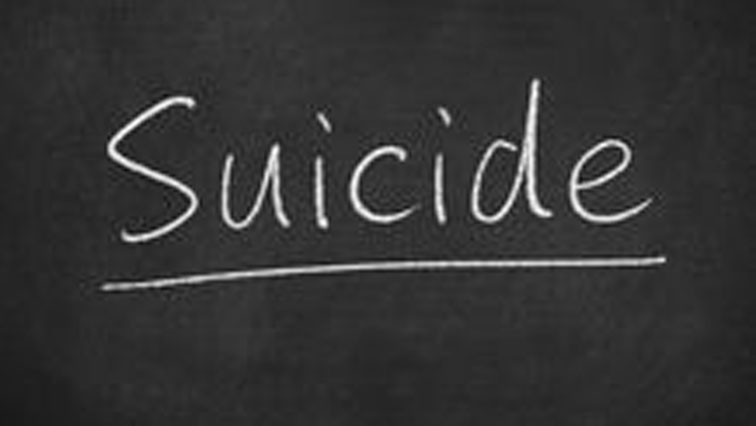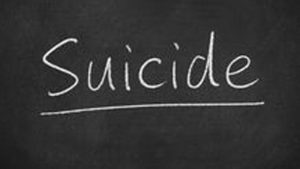Mental health problems affect about 1 in 10 youth. In South Africa, 9.5% of teen deaths are due to suicide. A pre-pandemic study found that 24% of youth from Grade 8 through 11 struggle with feelings of sadness, hopelessness, and depression; 21% have tried to take their lives, and still much goes undetected and untreated. Also of concern is that up to 80% of mental disorders first occur before the age of 26.
Despite all of this, 70% of youth don’t get treatment for their conditions. Misunderstanding and stigma surrounding mental health is still rife. Access to mental health treatment and care is severely limited, non-existent in some areas.
Adolescence is a uniquely tough time. Faced with so many physical, emotional and social changes, being a teen is not easy. Now with added issues like exposure to bullying and violence, poverty, abuse, and disruptions to all facets of life due to the pandemic, young people are left more vulnerable to mental health problems.
There is no physical health without mental health. Good mental health allows children and young people to develop the resilience to cope with whatever life throws at them and grow into well-rounded, healthy adults.
The Challenges Of SA Youth
Adolescence and youth brings about cognitive, social and emotional transitions. Young people make very different social decisions than adults and being socially connected or part of a group is very important. Being a teen in South Africa today comes with a unique set of challenges – inequality, dysfunctional family structures, poverty, crime, abuse to name a few.
Common psychiatric disorders in adolescents include anxiety, depression, conduct disorders, substance abuse, eating disorders. All are associated with an increased suicide risk, and are often a direct response to what is happening in their lives. We also know that vulnerable youth as well as those with lower social capital are most at risk.
Causes & Triggers Of Adolescent Mental Disorders
Mental disorders can result from complex interactions between a person’s genes and their environment. Adolescence itself is a period of significant physical, social and emotional change and teens may be more vulnerable.
Risk factors for the development of mental health problems in teens include social isolation, academic pressures, low self-esteem, bullying and exposure to violence, substance abuse.
Traumatic and highly stressful life events can have significant and lasting negative effects on mental health that continue as the adolescent matures. Loneliness and social isolation, bullying, abuse, loss and conflict can all result in depression.
Depression can be due to social isolation and loneliness, too little integration with society or a community – spending time on the internet and cellphone chat services reduce social involvement, increase social isolation and increased loneliness and depression. Much of what teens experience – bullying, social isolation, abuse – is a covert underground activity in a kids-only world. Teens are prone to act – and react – rather than reflect. They often focus on the present and feel overwhelmed by emotions.
Warnings Signs & What To Watch For
All too often adults are not aware of what is happening under their very noses. This often happens because we don’t know what warning signs to look out for.
Mental health disorders manifest in different ways and may present differently in adolescents versus adults.
Adolescents are more likely to experience irritability, apathy, sadness, low self-esteem, social withdrawal, insomnia and impaired concentration. Symptoms include low mood and anxiety, as well as thoughts and behaviours that impact negatively on the adolescent’s wellbeing and functioning. They may become withdrawn, stop participating in school activities, or struggle academically.
If untreated, secondary complications can arise, such as dropping out of school, entrenchment of unhealthy behaviours like cutting or extreme weight gain or loss, and these may persist into adulthood. Youth with depression often describe themselves as useless, or life as boring.
In older youth, the diagnosis of depression may be missed because it ‘looks’ different – they may present with oppositional or antisocial behaviour, such as substance use and have problems at school.
COVID-19 And Its Effects
Loneliness in young adults is associated with a number of negative health and mental health. Coping with the COVID-19 pandemic hasn’t been easy for any age. Feeling sad, scared, stressed or angry while coping with COVID-19 is normal. Being away from school, friends and relatives, having ‘normal everyday routines’ disrupted with no end in sight is a very real cause for anxiety.
Adjusting to new ways of learning and working is hard.
Continual research is clearly showing that the psychosocial effects of the pandemic have disproportionately affected the youth. Young people may be more affected by the negative psychosocial consequences of ‘lockdown’ and social distancing than adults. Young people may also find it more difficult to cope with the current crisis as their coping skills are not equivalent to those of an adult.
It is important to remember that children, teens and other youth are also affected by the impact of the pandemic on their caregivers – like unemployment, financial and emotional stress, illness, death, and fear of infection. It is important that adults receive adequate care and support.
In addition, for youth in domestically violent or dysfunctional homes, the pandemic, lockdowns, restrictions, curfews and school upheaval means many youth are forced to spend more time in abusive environments.
The pandemic tends to magnify pre-existing social inequalities in resources (like education, income, access to healthcare, access to support) resulting in an unequal impact on youth from different social strata.
What To Do
There is still a lot of stigma and fear around suicide. Many people still believe that if they talk about suicide, teens may get the idea to take their lives. Research shows that talking about suicide with a young person does not cause them to have thoughts of suicide or kill themselves. But not talking about it can lead to thoughts of suicide turning into actions.
It is reported that 75% of teenagers who attempt suicide give warnings of their suicidal ideation to people around them. Talking about suicide and depression creates an opportunity to discuss feelings and thoughts that might have otherwise remain hidden. Most teens who are thinking about suicide are honest and relieved when asked direct questions about their suicidal thoughts or feelings.
Informing, educating and empowering parents and teachers on how to have the hard conversations with teens about mental health, bullying, abuse and substances is the first step to preventing teen suicide.
Now more than ever, parents need to connect and engage with their children.
Possible warning signs:
- Talking about suicide or death – could be writing or drawing about death and dying or posting pictures, quotes or messages on social media.
- Writing or sending goodbye letters or messages or posting goodbye messages on social media.
- Saying things like “everyone would be better off if I was dead” or “I wish I wasn’t here anymore” or “I don’t want to be here anymore”.
- Giving away prized possessions.
- Signs of depression, such as moodiness, hopelessness, withdrawal, drastic change in their appetite and sleep, and loss of interest in usual activities.
- Increased alcohol and/or other drug use.
- Behavioural changes and taking excessive risks.
Contact SADAG
“We do not all have the same possibilities to maintain our physical and emotional well-being. That´s why I didn´t hesitate to ask for help.” (Richard, 19)
If you think you or someone you know might be depressed or need help, please consult a professional or reach out to SADAG.
Suicide Helpline 0800 567 567
24-hour Cipla Mental Health Helpline 0800 456 789
24-hour Substance Abuse Helpline 0800 12 13 14
- Author of this piece is Janine Shamos, a Trauma Specialist, Transformation Coach, Writer and Owner Frankie London.






